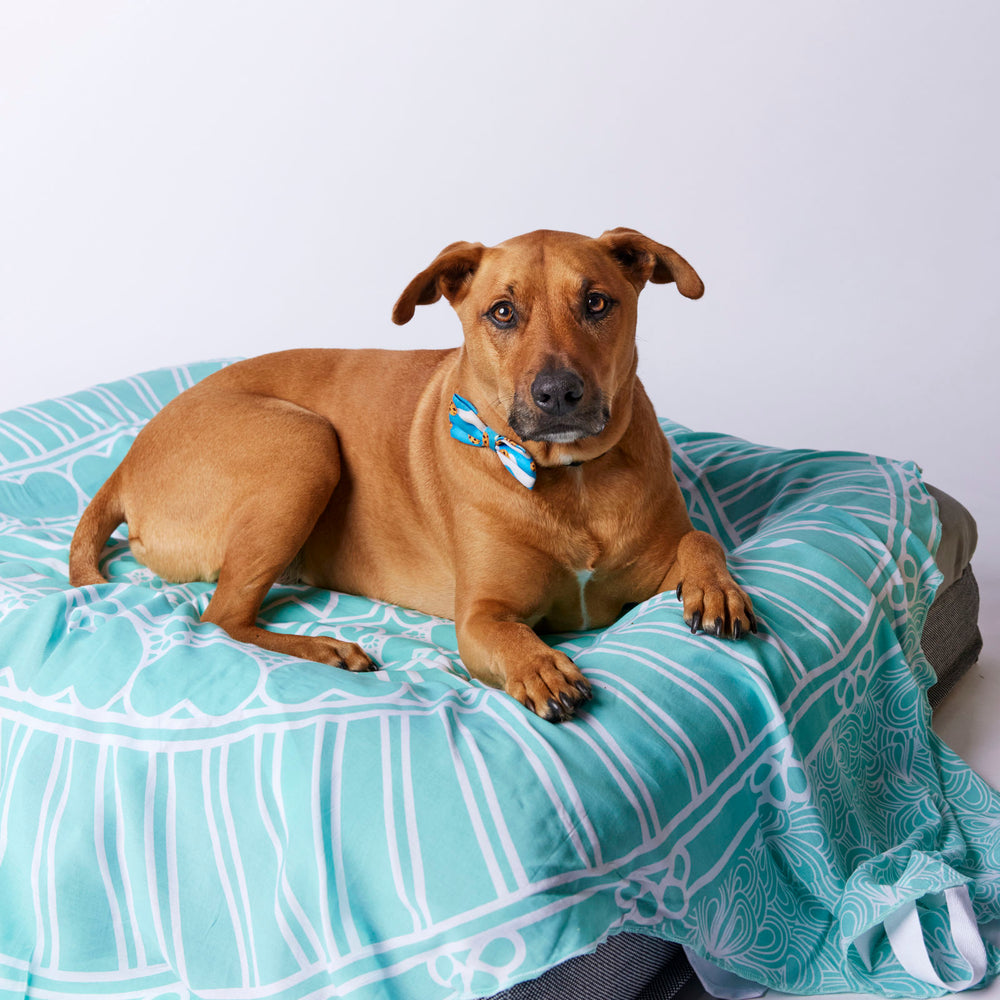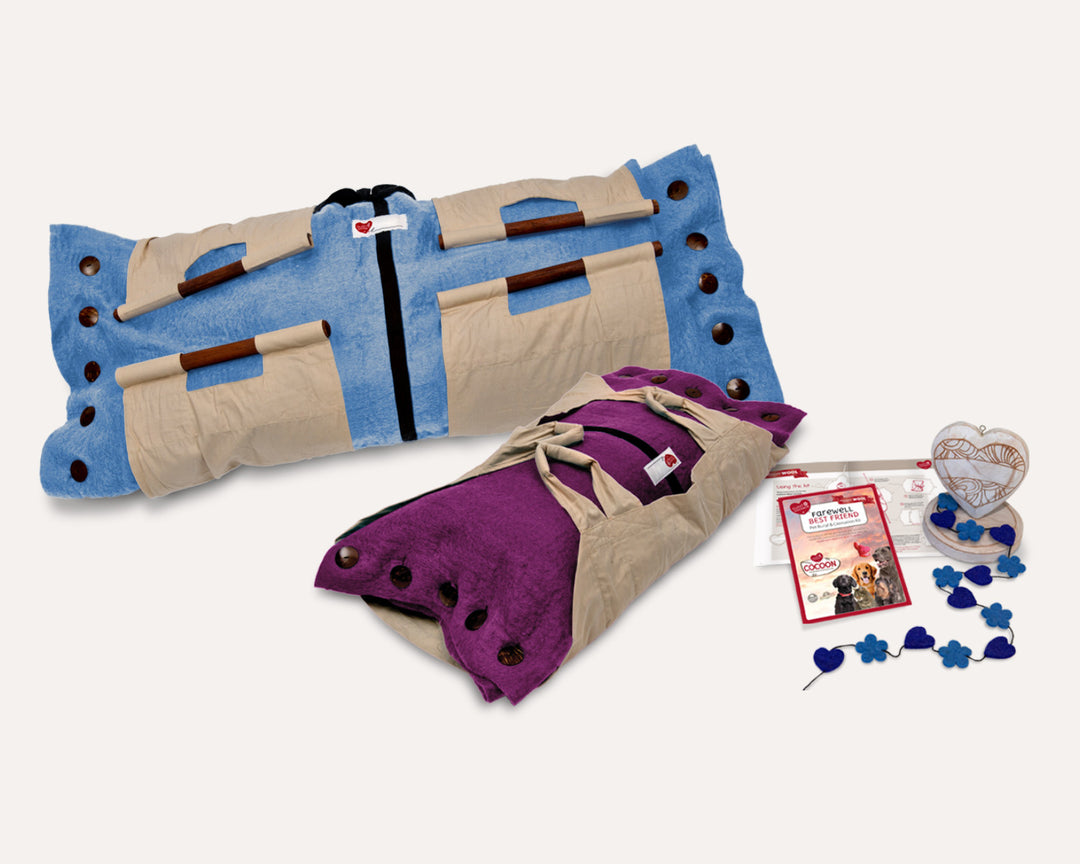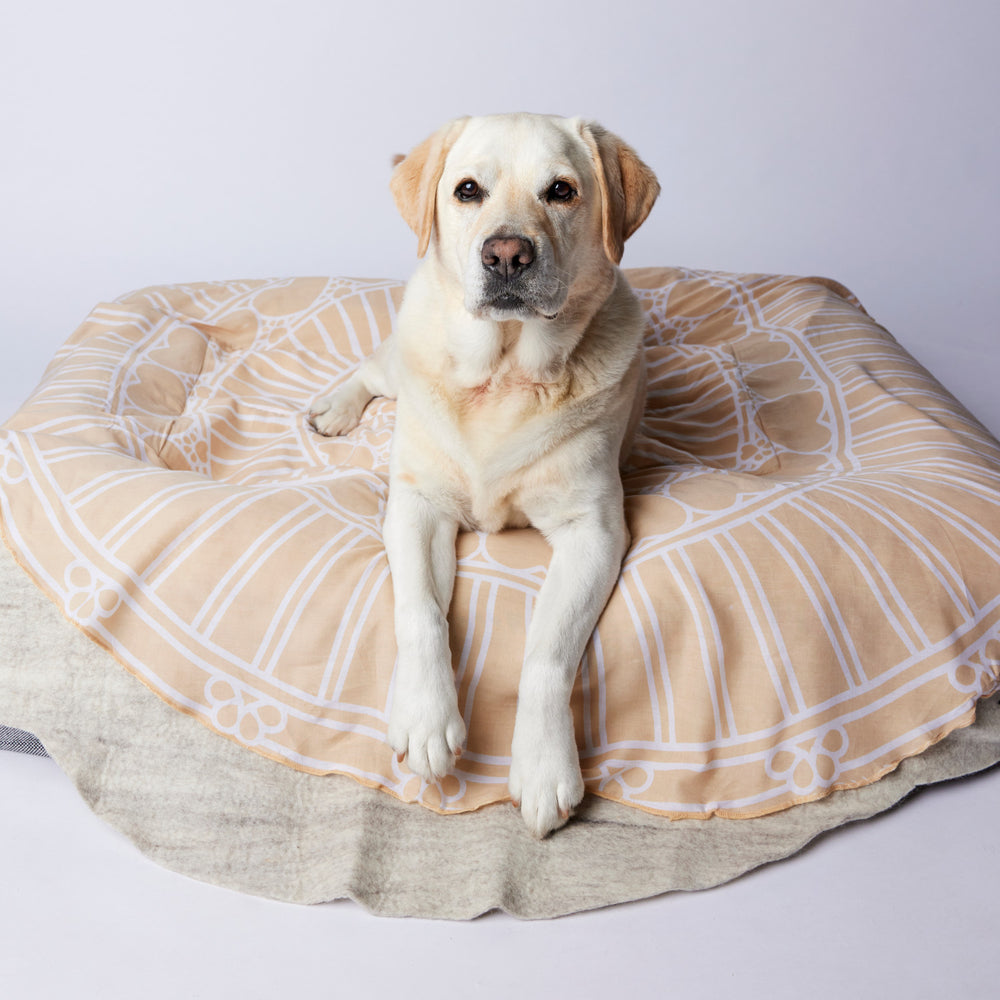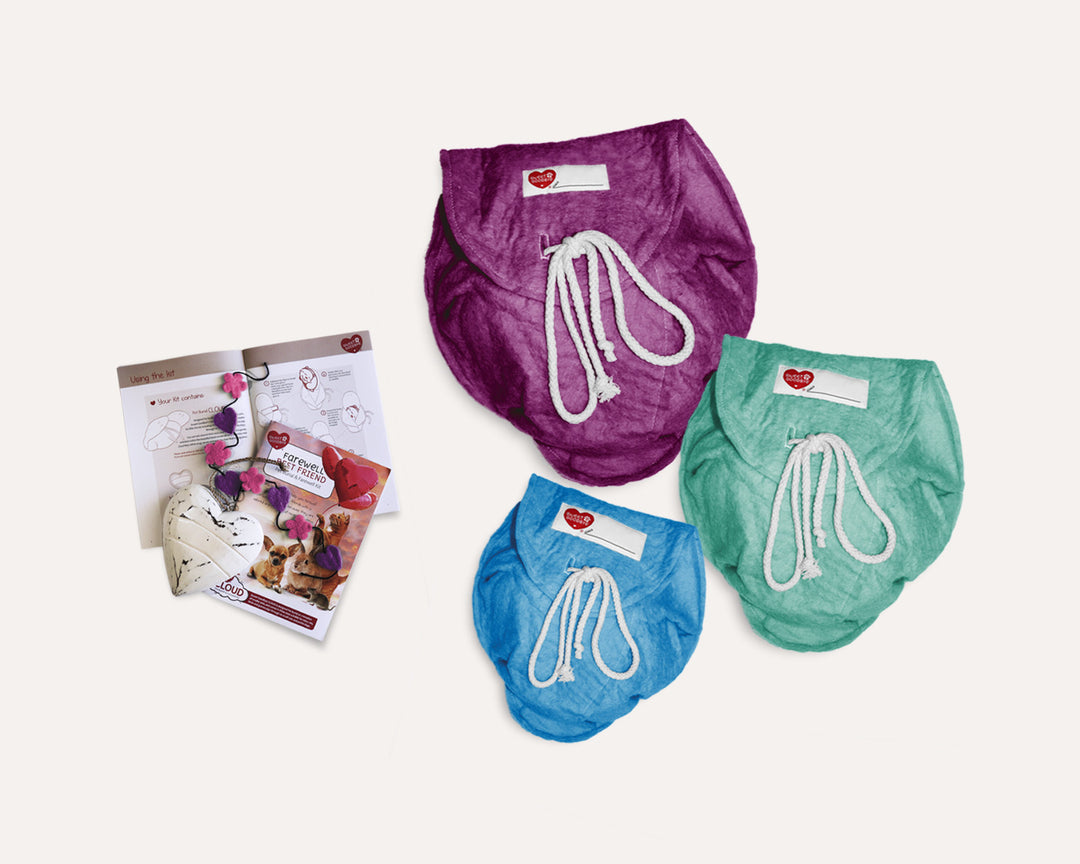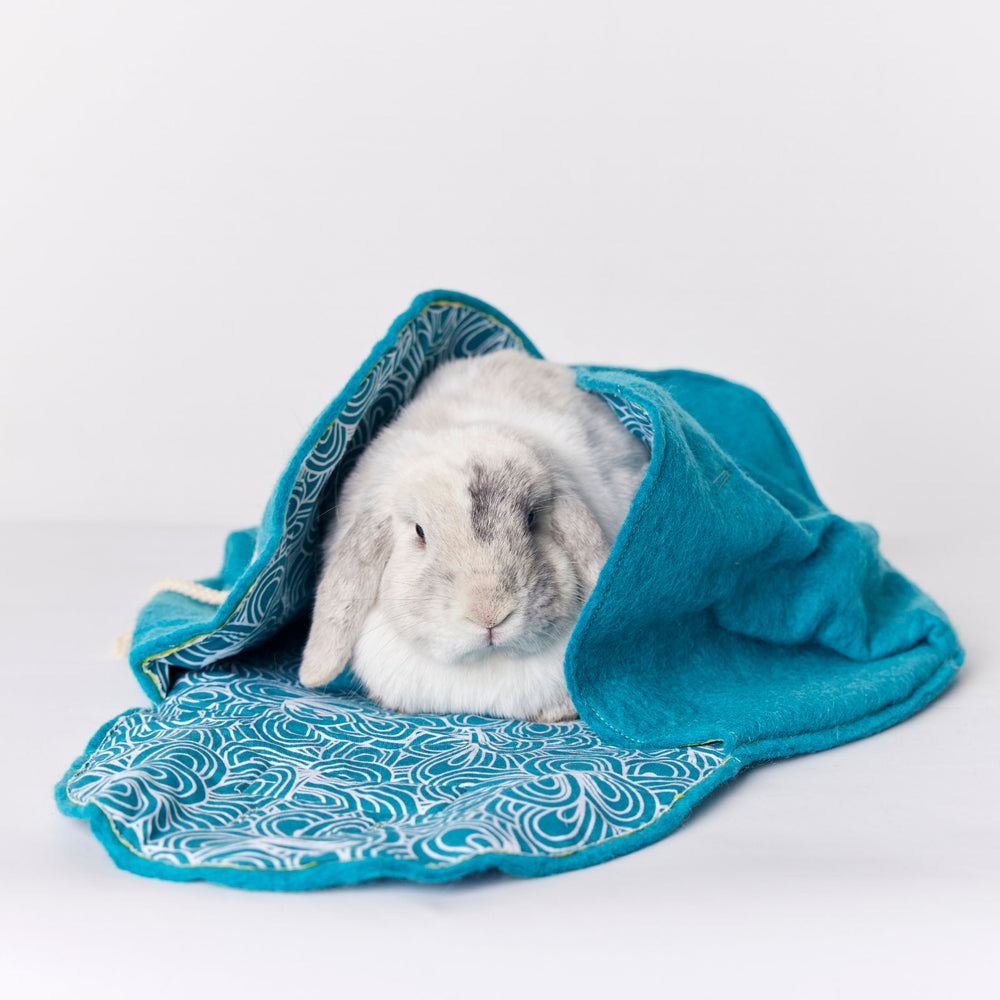From Grief to a Thousand Tails: How One Woman’s Loss Sparked a Lifesaving Movement
When Jenni lost three beloved dogs in just three months, her home fell heartbreakingly silent. But what began as a personal journey to heal her own heart turned into a mission to mend countless others - both human and canine. Six years later, BARRC (Bunbury Animal Rescue Rehome Care) has helped nearly a thousand dogs find new beginnings. From offering hope to struggling pet owners to creating second chances for surrendered pups, BARRC is more than a rescue - it's a lifeline. In this inspiring chat, Jenni shares how a handful of women, an army of volunteers, and an unshakeable love for animals are reshaping what it means to rescue, rehome, and rehabilitate in Western Australia.
What inspired you to establish BARRC?
The whole reason I fell into BARRC or fell into rescue is I actually, I'm on a farm and I lost three dogs in three months and coming home to an empty house, it was just horrible. And I was like, I can't do this. And someone said, well, why don't you foster? Because then you still get your doggy cuddles, but you've got some space to let your heart heal. And I went, yeah, that's a good idea. And six years later, here we are. And all of us have got similar stories, all of us have had dogs, always been around rescues. So we all have that affinity with animals and especially dogs. So I think if you spoke to all of the other top dogs and committee members, they'd all have similar stories of why they got into rescue. But yeah, that's mine.
BARRC is actually six years old. It's just turned six. And there were five of us originally, and we all sort of felt that there was a bit of a need for private surrenders. So there were a lot of other rescues around the area that were for the pounds and things like that, but there was nowhere for private surrenders to go, and we kind of felt fairly passionate about that. So we sort of went, okay, let's start it. So it was basically five girls that started it six years ago. We are nearly up to a thousand dogs, which is pretty impressive in that time.
Your mission is to rescue, nurture, rehome and educate. How do you do all these things?
So the rescue is pretty easy. So it's the rehome and then the nurture again, we try and put them into foster homes. So each dog actually comes in. We do have a little kennel that we can put dogs in, and that is really to get to know them so that then we can put them in the appropriate foster home. We've got a team, there's about 75 people that go out twice a day to walk the dogs and feed the dogs and train them as well, so they get a few more walks than my dogs do.
And then we put them into foster homes so that's that nurture side. And then we actually run quite a few education programs as well. So we run education programs for all of our kennel hands and all our foster carers as well. And we actually did run a few educational classes for the public too, so as well as running a, we call it the SN program, which is a sterilization program. So that's trying to break that cycle and educate people and say, look, you really need to desex these dogs. We pay for the sexing for them, and then we try to teach them why it's a good idea to desex. So it's just trying to break the whole cycle.
How do you ensure a good match between the pet and the family?
It's quite an in-depth process, and it's one that the foster carers get really involved in, and it's one of the things that they love. We put the pet up for adoption, and it's not first in first serve. So we actually go through all of the applicants and pick maybe three or four of them that we think are going to be a really good fit for that dog. And then we hand them over to, we've got a group of people that we call guide dogs, and those people guide the foster carers. So each foster carer has a guide dog. So we hand those applications over to the guide dog, the guide dog reads them, and then they'll hand them over to the foster carer. The foster carer reads them, and then the foster carer will bring those applicants.
So it's the foster carers that know the dog's the best - it's them that actually make the decision on which person they think is going to be most suitable. And then we actually have a two week trial as well. So the dog will go to them, they'll adopt it, we ring them at day three to make sure that it's all going well. And then we ring them again at day 12 just before the end of the trial period, make sure it's going well again and they want to finalise it. And then when they do, that's it. So it's quite a lengthy process.
What's a success rate?
It's fairly high. We do get it wrong occasionally. I've never looked at the figures actually and seen how many returns we get. So when we talk about returns, one of the things we do is in the agreement, we actually say to the adopter, if at any point you can't look after this dog anymore, we would like to be contacted first and given the first option to take that dog back. So we've got a little saying that once it's a BARRC dog, it's always a bark dog,
so it'll forever be safe. So if it finds itself in a situation again, then it can't be in that home, we'll just take it back and rehome it again. But it's rare, it's not that many. We're seeing a little bit of an increase, and that's because of the homelessness that is just our biggest killer at the moment. So people are becoming homeless, they're finding rentals that won't allow pets and domestic violence situations split up. All those sorts of things can happen around a dog. And then we try and bring them back
What is the main reason pets are surrendered?
I would've said three years ago they were rare and it was more like unwanted litters, and we were actually getting quite a lot of pound dogs. So dogs that were just found, we were even reaching out to places past Carnarvon and getting dogs from up there thinking,
we'll get them out of the smaller communities because small communities struggle to move dogs out. And then Covid hit. And after Covid, it's a complete switch around - it's homelessness, there's so many dogs coming in, we say no to up to 15 dogs a week. And those people have no other options. They don't have any other choice. And they sort of ask me, what are my other choices? And I'm like, you don't have any. And that's heartbreaking. We didn't go into rescue to tell owners that they need to euthanise a perfectly healthy dog, but that's kind of where we're up to at the moment. And we don't have enough foster carers and that the adoptions are low, surrenders are high. So it's this kind of perfect storm that is not good for dogs at the moment.
Is it only dogs that you take in? Are there other pets?
No. Look, we have done some very random ones. We've done a sheep and a chicken, but mainly dogs. So I think cats were a different kettle of fish, and you need a complete
team around cats. And we always thought we would do cats, but there's quite a few organisations around this area that manage cats. So we go, okay, let's specialise in dogs, make sure we get the dogs right and we'll stick with that. And the occasional sheep.
Do you find that there's any particular breed size?
No. There used to be a saying amongst rescues that said if it's not a rescue, unless it's got some staffy in it, but these days we are noticing that there's a change.
We are seeing a lot more small dogs coming through, which is really unusual. Before it was like they were really sought after dogs, and if we got one, we'd get up to 60 applicants for one dog. Now we're seeing an increase in small dogs and we're seeing an increase in purebreds. We've had pure bred golden retrievers coming through and things like that, which again, we just never saw those really good purebreds coming through. And now we do. And a lot of them are being taken to vets and asked to be put down because the owners can't afford vet surgery. There's some issues with the animal and they're just like, we can't afford it, so can you put this dog down? And the vets go, oh, it's too good a dog to put down. So then they start ringing us.
Is there more people who can't afford vet care bringing in their dog (that you end up looking after) compared to those who just can't afford to keep their dog?
It's becoming more prevalent. I did a little sort of run on Facebook and we called it Fix It Friday. Four dogs came in, all of them needed specialised treatment. So there was one, it was a French bulldog that couldn't breathe. It had the classic bulldog nasal issues, it needed surgery. So we got that done. There was another one that had a blood disorder, a little tiny teacup poodle. And so we spent some money on that one and another one that had hip dysplasia, a little poodle. So again, we treated that one. We certainly lose money on those dogs. I think the most expensive dog was a Sharpe and he was only young, he was only 10 months old, but he cost us $10,000 with all the surgery that he needed. And the adoption fee is 550. But when they're any that young, you feel you have to give them a go. You have to be able to sort of say, yeah, okay, let's take this on. And we do a lot of fundraising because we're totally not-for-profit, no government support, and we've got a really good fundraising team around us so that we can take dogs on like that and go, right, let's give them a chance.
Are there issues with pet owners not being fully aware of the breed of dog that they're taking in, and the finding they can't afford to care for them?
It's so varied. There's so many different reasons. The teacup poodle was really unwell. The owner was very unwell as well, so she couldn't work. And this dog got this blood disease that was unexpected. So some people just don't care. It's such a varied reason. Some people do and they're devastated. I mean, I've got a foster carer dog here at my feet, she's eight. The owner had her since she was eight weeks old and he had to surrender her and he was devastated. So it must be very confusing for these dogs. They've been with their one person for such a long time. I couldn't imagine having to give up my dog.
How do you assist the new pet owners in transitioning? Do you find that most never had pets before or generally are the people who are taking them on are quite across what's involved in taking on a dog and have had previous pets?
Most of them are. So if you get somebody that has it gets a rescue dog, they've had a rescue dog in the past. So we do get a few new owners and we are fairly careful with them and we try and give them as much support as we can. And we'll often suggest we've got three trainers that we work with quite closely in the Bunbury area. And so we sort of say to them, look, these are the trainers we would suggest. We suggest you get training for this puppy. And we actually often extend the trial period as well. If the dog is showing some behaviors that they're not sure how to manage, we'll even pay for some of the training to try and keep that dog in that home because we know what situation we're in at the moment. So you're better off trying to keep it where it is.
Tell me a little bit about the volunteers that you have working for you?
I used to manage 14 people and now suddenly looking at volunteers, they're completely different. It's such a wide variety of people. You meet people from all walks of life. There's no set rule for it. There's more women than men. We do have males, but there's certainly more women in the volunteer positions. We've got a team of people that do sewing for us, the grandmas of the world that want a job to do. So they sew for us.
And we've got a lady up in Perth that loves doing markets. So she runs all our markets up there. We've got the kennel hands and the kennel hands are a range of people that go, there's, as I said, 70 odd people that go there twice a day and walk and feed the dogs. And again, it can be anyone. We get some people from those for the kennels, especially those who are special needs people, and they have a carer that comes with them and that works really well.
And we get some really lovely relationships out of that because they want to come and then the carer has to go with them. And then the carer gets suckered into walking the dogs as well and falls in love with doing that. And when we have gatherings, they turn up.
So there's this sudden emotional connection and this human connection that is caused by the dogs. And then the foster carers, I mean, we couldn't do what we do without the foster carers. They take a dog into their homes, we supply all the bedding and the feed and the vet visits and all the other things that money wise we supply, but they supply the home and the love. And without the foster carers, we just couldn't do it. And that's what we are short of.
How many foster carers do you have and how many do you think you need?
We would have on our books over 50, but some of them work 12 hours a day.
So trying to put a dog into that home is really hard. Me, I've got chickens, sheep, dogs, cats, so whatever dog comes here has to be very, very social and get on with everything.
So we've got a lot of foster carers on our books, but they're all very specific for a dog that will fit with them. And really, we need homes that people are home all day, don't have any other pets and have high fences, and they're kind of hard to get. So we can have up to 30 dogs on our books at one time, so we'll have 20 in foster homes. So although we may have 50 up to 50, 60, even 70 carers on our books, we've actually only got 20 dogs that are actually in care. And a lot of the dogs that we get in care we need homes for are like a kelpie. If you put a kelpie in a unit, it's just not going to work. So yeah, we have about 20 dogs that people and 20 carers that constantly foster care for us, but it's trying to get that right mix that is really tough.
Do you catch up with any of the dogs that you've homed?
Yeah, so there's often the foster carer ends up having a relationship with the adopter and they keep in contact and we've got a couple of Facebook pages, we've got a foster care Facebook page, and they'll put up and say, oh, I bumped into so-and-so the other day and there's a little photo. I think the nicest one for me is I was at the Bunbury markets and these people walked past and I was like, that's one of my foster dogs. And I went, Kira. And the dog turned around and looked at me and went, I don't know you. And I went, Kira, it's me. And then she smelt me and she just went berserk and went, oh my God, it's you! And was all over me like a rash. And it was just so wonderful. I hadn't seen her for a year, but once she realised who it was, she was just so pleased to see me. So that's kind of special. That's really lovely. And I still get messages. I got the most heartfelt message from an adopter a while ago, and I felt terrible. I didn't remember the dog. She said that this dog has saved my life. She said, this dog brought me through domestic violence. We've fled our home. Me and my children had to rebuild our lives. And King was there all the way through it, and without him I wouldn't have made it. And she wrote and she said, I just wanted to let you know that and say thank you. So those things are special.
They say that a rescue dog or a foster dog is the best companion and better than one straight from a litter and all that because they have other things that new dogs don't. Have you experienced that? And would you agree with that sort of statement?
Yeah, absolutely. Yeah. I had a foster dog here a while ago, and he was a lovely dog and I re-homed him with a family with kids. She actually wrote to me and she said one of my children, I don’t know what the condition was, she had a condition where she had a seizure. And the lady rang me and she said, I can't believe this, my daughter's just had a seizure. And the dog just went and lied on her, just instantly knew what to do to calm her down and bring her down. Can you tell me anything about his history? And I'm like, no, we can't. But he just knew there was something in him that just knew that's what he should do. So they certainly do. They have history and they remember things like that. So that was pretty amazing. And she was stoked that he recognised the condition and went right, I know what to do. But how he knew, I dunno.
Do you get to see that moment when one of the dogs sees who their new parents are, and do you see an instant bond?
The one that I remember the most, I mean I've had so many foster dogs, but I remember I had this certain dog, her name was Bella, and I went down to meet these people and they had their 18-year-old daughter with them who was autistic. And they said, oh, we want it for a companion for the daughter. And I went down and I was talking to the parents and they weren't my people. There was nothing wrong with them, but I just didn't gel with them. And I was like, and I really wasn't sure about letting this dog go to these people because they weren't my people. And then I turned around and there is Bella sitting on this teenage girl's feet looking up at her and the teenager is looking down at Bella. And there was just instant love between the two of them. And I went, yep, off you go. You found your people. And it was lovely. And it kind of reset me, just because somebody isn't your person, it doesn't mean that it's not a good fit. And now I'm much more. I'll just watch the dog.
What about the social stigma attached to giving up a dog?
So I guess I manage the main back phones. So I take a lot of the phone calls. So I'm the first contact with people and when you speak to them, we just don't judge. We dunno what their situation is. So I never judge. I'm like, yes, if you need to surrender your dog, why? What's going on? And I just go through the process of talking to them about it because again, I've got so many kind of examples about stories and I remember my very, very first surrender that I went to go and pick up and I hadn't had anything to do with the lady and the dog was pregnant, and I'm like, should have got your dog.
So I'm being all righteous and judgmental. And I get there and she's got five kids, she's been kicked out of her home, her husband's left her, she's lost her job and her dog is pregnant and all these five kids are sobbing that they have to give this dog up.
And I just looked at her and said, let me just take one problem away for you and I will look after this dog for you and I will never judge you ever again. She had so much on her plate that she just could not cope with a pregnant dog. There's no way she could have, there's never any judgment from BARRC. We just say, yes, let's see what we can do to help. We try to help. If we can't take the dog in, we try and give them alternates as well.
Have you considered training? Have you considered this? So we give them hopefully a few more tools in the toolbox to manage cases if we can't take the dog in.
But yet you see it on Facebook, oh, you should keep your dog, you should keep it. That's cruel. You just don't know people's circumstances.
And I suppose it's better that they come and look at this alternative than perhaps what the other alternatives might be?
Yeah. Rangers have found dogs tied up to trees in the bush. We recently got a litter of puppies that were found out in the bush, somebody had dumped them.
So we're better off taking them in or they're better off being delivered to the Rangers, them being tied to a tree out in the bush because their chance of survival is so low, they've got to try and get out of the situation themselves. And often the dogs are just not equipped to do such a thing.
Are there bigger goals for BARRC? Where do you see it going from here?
We would love to get bigger. Volunteers are our pinch points if you like, and it's the upper level volunteers that we lack. There were five of us and one has just gone traveling around Australia, so she's still a part of Bark, but not so much. And another one has gone off to uni. So now realistically, there's quite a small core group of, we call ourselves the top dogs. There's a very small core group of top dogs that do all the main heavy lifting.
We've got some amazing volunteers below us, but we still need that sort of upper level volunteer. And it's hard. It's really hard to find people and it's really hard to engage with them. And I'm still trying to work out why I get applications in for people wanting to help and I reply to them and I get nothing back. I ring them, leave a message, and I get nothing back. So whether it's a spur of the moment thing for them and they sort of think, oh yes, it would be a good thing to do, and then they realise they don't have the time, I don't know. But we would love to do more educational things. So we realize there's this massive group of people that Facebook doesn't touch, the media doesn't touch sexing, doesn't know about microchipping or doesn't care, I don't know. But trying to get to them in that education space, we would love to do a lot more in education, but it's having the volunteers to help do that. That is tricky.
If you could give someone some advice if they're struggling for whatever reason - what would be the steps they should go through?
One of the other things that we do is we get quite a lot of donations of dry food and we actually give the dry food out to the R-S-P-C-A. We've got really good relationships with the R-S-P-C-A, with the Rangers. So we give food out to the Rangers and they give it to people in need. They know them, they know where those people are. So we've a lot of, there's an organisation called Doors Wide Open, which is a reach out center. We drop food off there. If anyone is struggling either for food desexing or surrender, give us a call. One of the things that we really work hard at is making the contact personable. So if my back phone rings and I'm not available, I will ring back and have a chat with that person so that we always get that personal contact and we can always give advice. So it's reaching out, getting people to reach out. I think it's the easiest thing to do because we've got those contacts with places that can get helpful.
It's interesting because the blog we did on the Dingo owner, the dingo was a rescue, and the lady, she fostered another dingo during that time as well. And then she didn't want to give it back, but they just couldn't take two of them. And then we interviewed a lady two days ago - she lost her dog that she had for nine years only a few weeks ago. Amos (her dog) was also a foster dog. She went to the local pound because she just wanted to be surrounded by dogs. But she fell in love with one, brought it home to foster and now she can't give back up.
We call that foster failing. You're a terrible foster carer when you can't give them up. And we've all done it. I've got a foster fail here as well. But yeah, one of the joys, I guess, of fostering is that it's a kind of a try before you buy scenario. If it fits well in your home, then you can keep them. And we encourage that. If somebody wants to foster fail, they can. That's for sure.
Are there other benefits of fostering a dog?
Possibly in a lot of cases, they might have already been toilet trained and all those things, so they don't have all those things to have to deal with as well. I mean, this girl that I've got here at the moment, she's eight and she's just perfectly mannered. I've got free range chickens around me, and she doesn't chase the chickens.
She loves kids, she loves all the other dogs. You tell her to go onto her bed and she does. So for somebody that doesn't want to go through that puppy training stage, an older dog is just perfect. Especially something like this. Daisy is just such a nice girl that she'll get rehome really easily.
Is there anything you particularly wanted to mention?
Foster! If anyone out there wants to foster, please let us know or volunteer. We're desperate. They are the two pitch points for us to foster. So if anyone reads this blog or watched the video clips and wants to foster, just if you Google BARRC and it's B-A-R-R-C, which is a bit of an unusual spelling, you'll find us. And yeah, give us a call and I'll answer!
Jenni and BARRC are based in the South West of Western Australia. We thank her for her time and encourage anyone who is interested in fostering a dog to reach out to BARRC or any other pet rescue and rehome group in your area.





